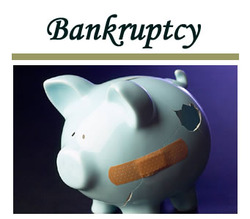Bankruptcy often comes with a negative social stigma, but bankruptcy is not a moral choice. Bankruptcy is an important financial planning tool that allows debtors a legal option to get out of a desperate situation. Studies by the Federal Reserve Bank of New York have shown that people in debt who file for bankruptcy do better financially than those who do not. So declaring for bankruptcy can be a great way to get back on track; however, there are some things that a person in debt should not do before declaring bankruptcy.
Do not create new debt.
If you plan on filing for bankruptcy, try to avoid creating new debt. The consequences of creating new debt can be severe, as a new creditor can claim the debtor took out a new loan, opened a credit card, or acquired a new debt without the intent of paying it back. A creditor could argue this is fraud because the debtor never intended to pay it back. If the court agrees the act was fraudulent, the debt will not be discharged in bankruptcy and the debtor will still owe the whole debt.









